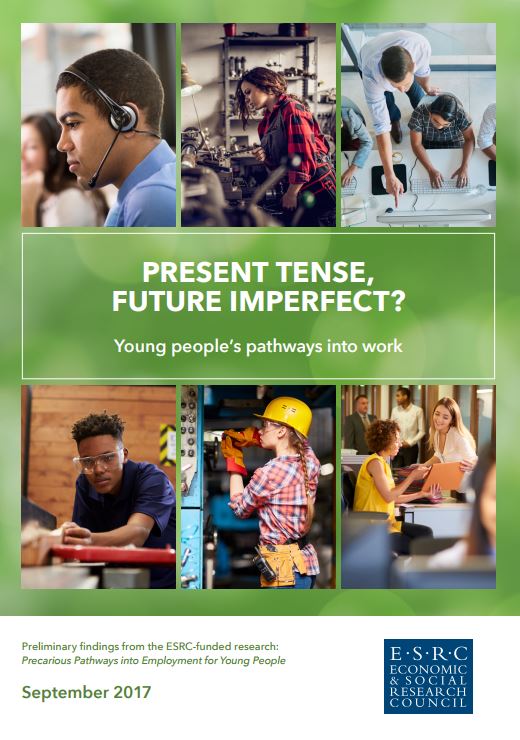Young people’s pathways into work
On 28 September 2017 a team of researchers from various Midlands’ universities launched their preliminary findings report Present Tense, Future Imperfect: Young people’s pathways into work at the final event for an ESRC project on Precarious Pathways into Work for Young People. The event was chaired by Matthew Taylor, following on from the launch of The Taylor Review of Modern Working Practices, with participants drawn from local authorities, employers, trade unions, government agencies, the third sector and young people.
The research has been led by Kate Purcell from the Institute for Employment Research, University of Warwick, and involved Anne Green from City REDI at the University of Birmingham and other researchers from the University of Warwick, the University of Aston, the University of Leicester and the Open University.
Anne set the context with a presentation on The changing labour market for young people: employment and unemployment . Amongst issues highlighted were extended and non-linear transitions to employment, the importance of navigational support on the pathway to employment and how local opportunity structures vary depending on where young people live. This was a precursor to subsequent sessions discussing (1) Employers’ perspectives on the youth labour market; (2) The experience of school and college leavers, (3) Graduates’ early career experiences; and (4) Labour market policy in historical perspective.
The research uncovers the heterogeneous experiences of young people in their transition from education to employment. Young people with solid educational and family backgrounds, with the contacts and confidence to seek out career opportunities, are highly likely to gain access to work in secure occupations with good conditions of employment and career development. Job-seekers without these advantages are increasingly found in low-skilled, low-paid jobs, very often on short-term contracts with no guaranteed hours and with few opportunities for progression.
Work experience emerged as important for all young people. Graduates were well aware of this and were supported by careers advice through their universities. Non-graduates also often sought out work experience placement and internships. But if these were unpaid young people without family support found these opportunities difficult to access.
For further details see the full report.
To sign up to our blog mailing list, please click here.

